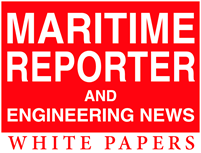
Prime Mover Controls (PMC), based in Burnaby, B.C., Canada, began in 1969 as a small governor service shop, servicing virtually all types of Woodward governors. Over the years, PMC has kept up with new developments in governor technology and has maintained a dedicated and experienced staff of service technicians, as well as extensive test equipment. Servicing and adapting new Woodward governors to a wide variety of applications, both on and offshore, continues to be a significant part of PMC’s business.
Prime Mover Controls (PMC), based in Burnaby, B.C., Canada, began in 1969 as a small governor service shop, servicing virtually all types of Woodward governors. Over the years, PMC has kept up with new developments in governor technology and has maintained a dedicated and experienced staff of service technicians, as well as extensive test equipment. Servicing and adapting new Woodward governors to a wide variety of applications, both on and offshore, continues to be a significant part of PMC’s business.
In 1973, PMC began design and manufacture of remote control components, instrumentation and system for marine applications. These systems have been refined and proven through years of dependable operation. PMC marine control systems include propulsion controls for controllable and fixed-pitch propeller systems as well as thruster and winch controls. These control systems have been installed on hundreds of vessels world-wide.
PMC started making control consoles in 1978. These consoles are completely pre-wired, tubed and tested before leaving the factory. The company’s level of integration of control and navigation equipment has evolved through the years. PMC in partnership with other manufacturers and subcontractors now have the ability to supply complete turnkey packages for all types of commercial vessels. To date nearly 100 ship sets of consoles have been designed, manufactured and commissioned by PMC.
Today’s marine industry requires more than high quality control components. It demands comprehensive interaction between customer and supplier in a relationship built on extensive knowledge and experience.
The high performance and reliability found in our integrated propulsion control systems are the products of that partnership.
If your projects require a committed team effort, we are prepared to meet the challenge. Our in house design team works closely with you to convert your specialized requirements into a complete integrated system.
Every product developed by PMC originated from an application need.
We have environmental testing facilities to enhance the development of products for the harsh marine environment. These facilities also assist in the testing required to obtain approvals from marine regulatory and classification bodies.
For software development PMC maintains the latest computers, operating systems, and software development tools. A state-of-the-art Integrated Development Environment (IDE) allows rapid software development and thorough testing of all hardware and software components.
Our highly qualified personnel are committed to details. All components and systems are manufactured to the ISO 9002 quality standard and all components are put through two complete test cycles.
Your system is fully tested and verified before shipment. This includes; documentation, programming, regulatory approvals and factory testing as a complete system.
Our dedicated, trained and experienced staff of service technicians are available for installation assistance and start up.
This commissioning can include PMC equipment, system interfaces or complete integration and verification to ensure smooth trials.
Customer training for the operation and maintenance of control systems is a service provided by PMC. Our customers may take advantage of our shop facilities, for hands-on training, or arrange to have one of our technicians visit your location.
PMC offers preventative maintenance and consulting services. Other services include sensor calibration and assistance with periodic automation safety tests. PMC also offers service kits and system spare parts.
If trouble arises with a system, be it with PMC components or an integrated component, PMC offers complete field services and comprehensive maintenance programs.
PMC maintains a staff of repair technicians, an extensive parts inventory, as well as up to date test equipment. If you cannot afford down time, PMC can offer exchange units during repair.
As a true engineered solutions company, PMC’s product and service offering is as broad as its customer’s needs. Literally!
PMC designs, develops, manufacturers and services a wide range of products, and every product developed by PMC originated from an application need. Some of the product highlights include:
Distributed analog and digital inputs or outputs
Industry standard inputs
Galvanically isolated inputs and outputs
Stand alone alarm display
Single or dual high speed network
Standard or marine ruggedized workstation
Event logging and trending
Integration with controls
Power management
Communication gateways to other systems
On-line self diagnostics
Ship to shore data transfer and remote diagnostics
Digital System for Vessels with Controllable Pitch Propellers.
Load sharing, Load control, Safety interlocks, Redundant, and Fault
tolerant.
Digital System for Vessels with Fixed Pitch Propellers.
Safety interlocks, Redundant, and Fault tolerant.
Bulb, fuse, and wire monitoring
Dual fused input power source
Auto transfer
Group transfer
Modular construction
Standard designs
Custom configurations
Electric Shaft operation
Suitable for a wide range of marine applications
Lever, Pushbutton, Azimuth, Single or twin screw, Separate standby group, Wrong direction alarms, Compact, Watertight, Serial network link, Data logging, Self diagnostics
The National Oceanic and Atmospheric Administration (NOAA) estimates that more than 700 million gallons of petroleum enter the environment each year, more than half of which is due to irresponsible discharges and illegal disposal. Oil leakage from stern tubes, once considered a part of normal operational consumption of oil by ocean-going vessels, has become an issue of concern and is now considered oil pollution.
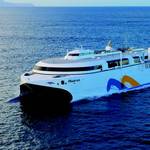
GE Marine is one of the world’s leading manufacturers of marine propulsion products, systems and services including aeroderivative gas turbines. These highly efficient marine engines meet current and future emission regulations, and offer superior availability for various commercial and military applications. GE gas turbine propulsion systems and solutions are being used in some of the most novel projects such as to power the world’s fastest commercial ship as well as the United States Navy’s new LHD amphibious assault ship.
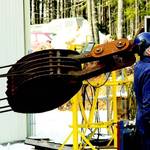
Hawboldt Industries was founded in 1906 in Chester, a small town in rural Nova Scotia, Canada. After more than 100 years, the company still resides in the same town but its business and product focus has changed dramatically. From its humble beginnings primarily servicing the local Nova Scotia marine and fishing market, Hawboldt products now reach a global customer base and serve a dynamic group of market segments.
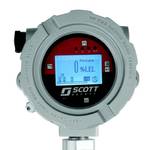
Protecting your people and your physical structure, while ensuring business continuity, are the most important functions of a fixed gas detection solution. Engineering a reliable, high-performance system that makes it easier and more cost effective to meet this challenge is the driving force behind a truly universal approach to gas detection.
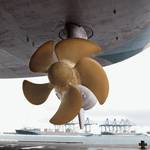
When the Environmental Protection Agency (EPA) issued the new Vessel General Permit (VGP) in December 2013, lubricant and fluid manufacturers were prepared to give vessel owners a number of environmentally acceptable lubricants (EAL) to work with. EAL usage is now essentially required for any application on vessels where incidental lubricant discharge could occur in the marine environment. Those applications include stern tubes, thrusters, stabilizers, CPP propellers, and wire rope and mechanical equipment immersed in water during normal operation.
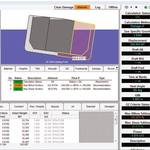
(Herbert-ABS), sets the standard for leading edge stability, load management and emergency response software solutions for the marine and offshore industries. A joint venture between Herbert Engineering Corporation and American Bureau of Shipping, Herbert-ABS supplies quality marine and offshore software products that include LMP-Offshore (offshore load management), CargoMaxTM (shipboard trim, stability and loading) and HECSALVTM (salvage engineering and design). Herbert-ABS is headquartered in San Francisco, with site offices in Glasgow, Singapore, Busan and Shanghai. Herbert-ABS recognizes that success comes from putting their customers first in terms of on-time deliveries, technical excellence and after sales support. The company offers user-friendly software, which is continuously enhanced to meet the needs of the industry.